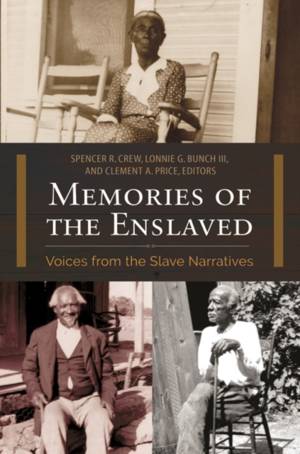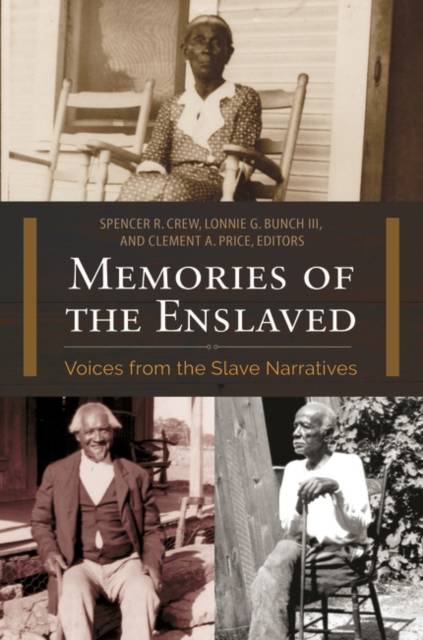
- Retrait gratuit dans votre magasin Club
- 7.000.000 titres dans notre catalogue
- Payer en toute sécurité
- Toujours un magasin près de chez vous
- Retrait gratuit dans votre magasin Club
- 7.000.0000 titres dans notre catalogue
- Payer en toute sécurité
- Toujours un magasin près de chez vous
Memories of the Enslaved
Voices from the Slave Narratives
Spencer Crew, Lonnie Bunch, Clement Price
Livre broché | Anglais
76,45 €
+ 152 points
Description
This book offers a first-person perspective on the institution of slavery in America, providing powerful, engaging interviews from the WPA slave narrative collection that enable readers to gain a true sense of the experience of enslavement.
Today's students understandably have a hard time imagining what life for slaves more than 150 years ago was like. The best way to communicate what slaves experienced is to hear their words directly. The material in this concise single-volume work illuminates the lives of the last living generation of enslaved people in the United States--former slaves who were interviewed about their experiences in the 1930s. Based on more than 2,000 interviews, the transcriptions of these priceless interviews offer primary sources that tell a diverse and powerful picture of life under slavery. The book explores seven key topics--childhood, marriage, women, work, emancipation, runaways, and family. Through the examination of these subject areas, the interviews reveal the harsh realities of being a slave, such as how slave women were at the complete mercy of the men who operated the places where they lived, how nearly every enslaved person suffered a beating at some point in their lives, how enslaved families commonly lost relatives through sale, and how enslaved children were taken from their parents to care for the children of slaveholders. The thematic organizational format allows readers to easily access numerous excerpts about a specific topic quickly and enables comparisons between individuals in different locations or with different slaveholders to identify the commonalities and unique characteristics within the system of slavery.Spécifications
Parties prenantes
- Auteur(s) :
- Editeur:
Contenu
- Nombre de pages :
- 360
- Langue:
- Anglais
Caractéristiques
- EAN:
- 9781440841781
- Date de parution :
- 15-09-15
- Format:
- Livre broché
- Format numérique:
- Trade paperback (VS)
- Dimensions :
- 155 mm x 234 mm
- Poids :
- 612 g

Les avis
Nous publions uniquement les avis qui respectent les conditions requises. Consultez nos conditions pour les avis.






